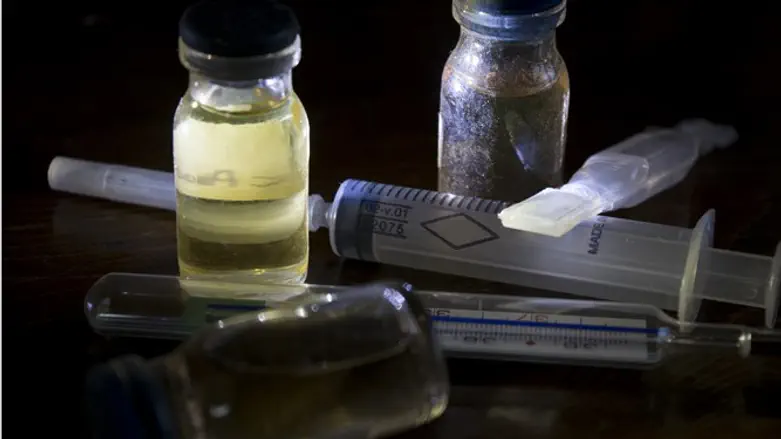
Health Ministry Director Prof. Hezi Levy today said in a Reshet Bet interview that "at the beginning of 2021, we will receive the start of Pfizer's vaccines; hopefully the company will make FDA registration. It isn't the only source of vaccines for Israel. We managed to secure our place before other companies so that we wouldn't be last in the supply chain."
Referring to the recent signing with Pfizer, Prof. Levy said, "There are some things in the contract that were subject of debate; with some of them we did well, with others less so. Many, including the Justice Ministry, engaged in feverish discussions with the company at night. In the end, we reached the optimum."
Sources claimed to Arutz Sheva that the issues referenced by Levy include the fact that Pfizer's safety protocol speaks of the year 2022, that the experiment was conducted on people up to the age of 65 only, and that it is a new technology that has not been tried.
Health Minister Yuli Edelstein referred in Sunday's cabinet meeting to leaks released on Friday about the details of the agreement with Pfizer.
"A serious crime was committed on Friday. Someone passed on the details of the agreement with Pfizer, which is subject to media confidentiality. I have no doubt that it will make it difficult for us to reach agreements with other companies, because they are exposed to what we signed with Pfizer. Of course, this will not deter us and we will do everything we can to bring an additional amount of vaccines to all Israeli citizens."
Bar Ilan University Laboratory of Immunotherapy head and Advisory Committee for Clinical Trials on Coronavirus Vaccines Member Professor Cyrille Cohen told Arutz Sheva: "Indeed, Israel cannot rely on only one supplier of vaccines.
"Though Pfizer published its interim report, we are still lacking critical information and details regarding its efficacy in population-at-risk and the elderly for example, and also for example, to what extent it can reduce hospitalizations and severe cases."
Immunologist by training, Prof Cohen works both on immunity to cancer and viruses; "Interestingly, the same type of cells, T cells, are critical for both responses," he says. Cohen has been a long-time member of national regulatory committees for advanced therapies.
He continues: "Also, unlike other vaccines, it also requires special conditions for its transport and care. As other companies such as Moderna, AstraZeneca, Johnson & Johnson, and Novavax are also close to submit their interim analysis and are considered leading the race, we should secure spots on their waiting lists.
"Additionally, the option of having our own vaccine production capacity (as with the biological institute in Israel) may also help in the long term in becoming independent of other entities and potential shortage (as seen with flu vaccines this year."
